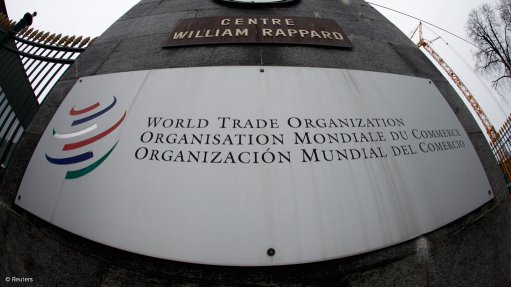
Photo by: Reuters
The World Trade Organisation (WTO) this week called on the Group of 20 (G20) countries to “show continued vigilance” and reinforce their determination to eliminate existing trade restrictions.
This emerged after the thirteenth trade monitoring report on G20 trade measures, covering the period from October 16, 2014, to May 15, 2015, showed a slowdown in the introduction of new trade-restrictive measures and a stabilisation of trade liberalising measures.
“The G20 individually and collectively must show leadership and deliver on their pledge to refrain from implementing new measures taken for protectionist purposes and to remove existing ones,” the organisation said in a statement on Wednesday.
During the period under review, the G20 economies continued to adopt measures aimed at facilitating trade, with around 112 new measures introduced – an average of 16 measures a month – while 119 new trade-restrictive measures were put in place, equating to an average of 17 new measures a month – the lowest since 2013.
While it was not clear whether the deceleration in the number of measures introduced would continue, the WTO called on member countries to strengthen their trade ambitions.
“The longer-term trend remains one of concern with the overall stock of trade-restrictive measures introduced by G20 economies since 2008 continuing to rise,” it added.
Since 2008, only 329 of the 1 360 recorded restrictions had been eliminated, leaving 1 031 trade restrictive measures in place – a 7% rise on the preceding period last year.
“In light of this, [the WTO’s] most recent forecast predicted a continued moderate expansion of trade in 2015 and 2016, although the pace of recovery was expected to remain below historical averages.”
The growth in the volume of world merchandise trade was expected to increase from 2.8% in 2014 to 3.3% in 2015 and further to 4% in 2016.